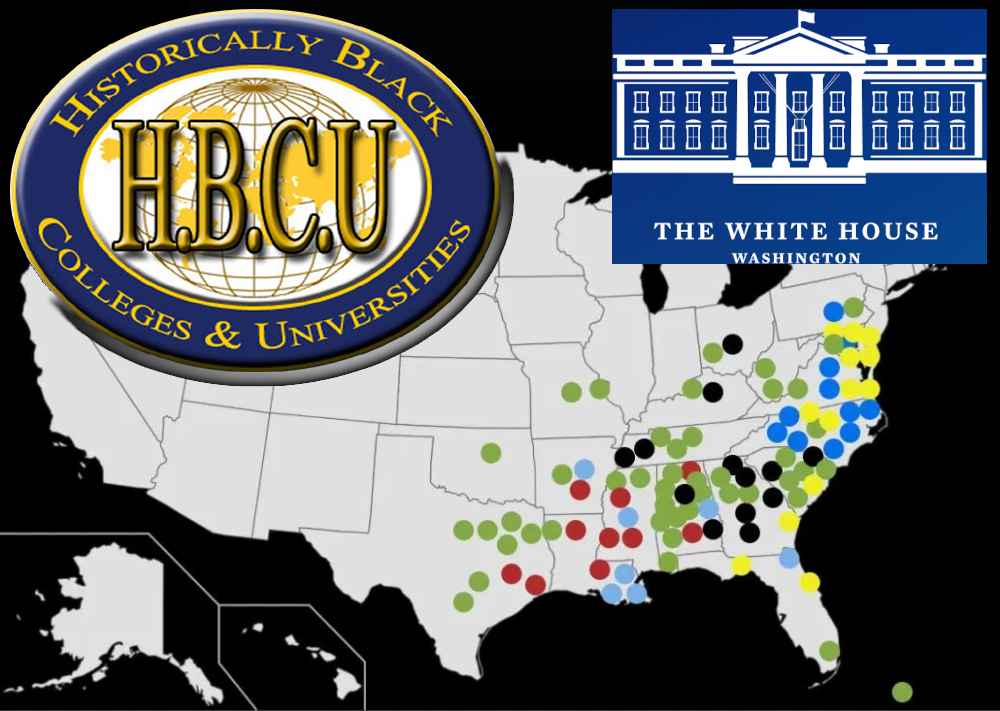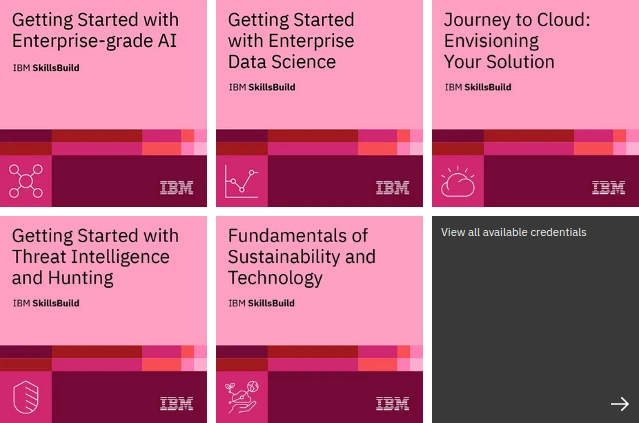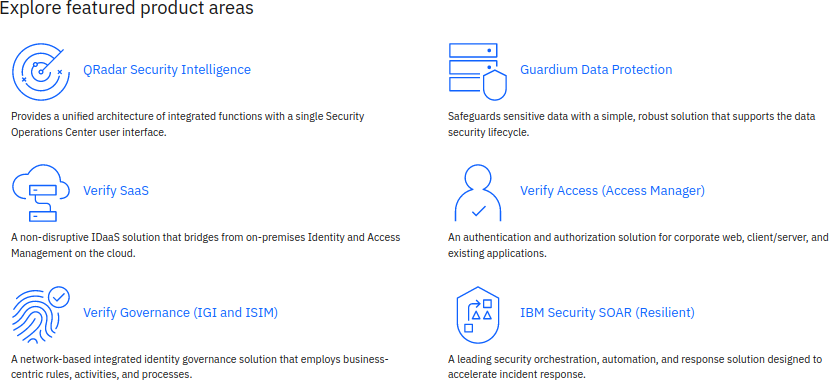What is an IBM HBCU Ambassador?

Starting with the basics, what is an HBCU? "HBCU" stands for "Historically Black College and University" (in the USA). How many HBCUs are there? At least 100, mostly in the south-eastern US. You likely know of the IBM technology corporation. But what is an IBM HBCU ambassador, also and why is it important for native Black Americans?
What is an IBM HBCU Ambassador?
An IBM HBCU ambassador, also known as "IBM SkillsBuild Student Ambassador," is a student who represents their current college in monthly IBM HBCU Strategists meetings, and is responsible for keeping their campus up-to-date on free training, mentorship, events, fellowships, and other professional resources. The HBCU-IBM liaison student must be approved by their college program advisor and dean.
What is the IBM HBCU Ambassador Program?
In March 2022, the President Joe Biden and Vice President Kamala Harris administration announced an HBCU Initiative to provide more professional development opportunities oftentimes only available through predominately white institutions (PWIs). The White House initiative contains partnerships with Microsoft, Netflix, Apple, Dominion Energy, and IBM.
Months later, IBM announced their HBCU initiative to train HBCU students to better fill the cybersecurity talent shortage. The program includes free training courses in cybersecurity, data science, artificial intelligence (AI), and cloud computing in their IBM SkillsBuild portal. These self-paced training courses aren't just for science, technology, engineering, and mathematics (STEM) majors. A better understanding of these topics benefits everyone including marketing, education, and liberal arts majors, and entrepreneurs.

HBCU students interested in training specific to IBM software and other cybersecurity applications can also sign up for IBM Training, formerly IBM Security Learning Academy. Each HBCU has their own portal and recommended training "roadmaps."
Completing IBM badge courses give you advantage when applying for paid Parker Dewey micro-internships.

Many IBM courses on both sites award you with digital credentials in the form of Credly badges, a great way to prove technical competence along with your resume on LinkedIn. Their current flagship course explains the Zero Trust methodology.
Be sure to use your HBCU student email account for both sites to receive info most relevant to you.
Why is the IBM HBCU Ambassador Program Important?
This will be a short Black history (which is US history) lesson. HBCUs have always been severely underfunded and under-resourced (networking, special deals, and other professional opportunities), especially when compared to PWIs. Some people try to argue around this crucial point by claiming that alumni should donate more money and time. While alumni should do both, and hopefully had a positive enough experience at the HBCU to warrant that investment, it does not address the systemic racism against historically Black universities in the form of withholding funding. In 2021, the state of Maryland was forced to pay $577 million that was withheld from Maryland HBCUs. Is that embezzlement, or is it legal because HBCUs aren't guaranteed but authorized that money, meaning that states can just say "no" for undocumented reasons and not be breaking any law? I'd argue both.
Some like to argue that Brown v. Board of Education of Topeka (1951) and integrated schooling negates the need for HBCUs. However, Norfolk State University (NSU) researchers concluded in the 1990s that native Black American students did better in HBCUs. I agree with this personally as a Syracuse University (SU) alumni who rarely felt at home on campus even in military veteran spaces with other student veterans. Furthermore, HBCUs are far more diverse than PWIs.
Which HBCUs Have an IBM Student Ambassador?
As of now, the HBCU IBM partnership consists of the following HBCUs:
- Alabama – Alabama A&M University (AAMU), Talladega College (TC), Tuskegee University (TU)
- Florida – Edward Waters University (EWU), Florida A&M University (FAMU)
- Georgia – Albany State University (ASU), Clark Atlanta University (CAU)
- Louisiana – Grambling State University (GSU), Southern University System (SUS), Xavier University of LA (XULA)
- Maryland – Bowie State University (BSU), Morgan State University (MSU)
- Mississippi – Alcorn State University (ASU)
- North Carolina – North Carolina Agricultural and Technical State University (N.C. A&T), North Carolina Central University (NCCU)
- South Carolina – South Carolina State University (SCSU or SC State), Voorhees University
- Texas – Texas Southern University (TSU)
- Virginia – Norfolk State University (NSU)
- West Virginia – West Virginia State University (WVSU)
Why I Became an IBM NSU Ambassador
I became NSU's IBM HBCU ambassador for three reasons:
- It's a start in addressing how severely underfunded and under-resourced HBCUs are. I want to make the most of the opportunity.
- IBM is providing a platform for networking across HBCU communities, which benefits the Black community. Your network is your net worth. Blacks collaborating is Black empowerment.
- A professor recommended me because of my other contributions to the NSU Spartan community.
Who is Your IBM HBCU Ambassador?
To find your HBCU IBM student ambassador, I recommend contacting your campus cybersecurity club (if applicable), or computer science (CS) department. HBCU students and others dedicated to supporting HBCU culture should attend at least one of the virtual meetings to learn how the program can help you and your HBCU. You should absolutely consider joining the cause if you're currently working on an HBCU cybersecurity master's program. The virtual meetings, and this program, are spearheaded by four Black women at IBM who work directly with HBCU ambassadors and faculty members to provide assistance in any way possible. Related meetings are featured on SkillsBuild.org. The two monthly IBM HBCU meetings:
- IBM HBCU VS HBCU Student Tech Talk Wednesdays is where HBCU student ambassadors and IBM HBCU strategists discuss tech news and updates
- IBM HBCU Light the Fire (HBCUs Sharing Best Practices) usually has a guest speaker from IBM to speak about a particular topic and answer questions
For the brothers who might be understandably concerned about anti-Black misandry in a Black female-dominated space, I haven't noticed such instances since I've started attending these meetings in January 2023. Speak up (or message me privately) if you encounter something that you feel should be addressed. Until then, simply remain vigilant and focus on being part of the solution.
Are There Other HBCU IBM Relationships?
If your HBCU isn't listed as part of the IBM HBCU cybersecurity program, there's also the IBM-HBCU Quantum Center supporting "Albany State University, Clark Atlanta University, Coppin State University, Hampton University, Howard University, Morehouse College, Morgan State University, North Carolina Agricultural and Technical State University, Southern University, Texas Southern University, University of the Virgin Islands, Virginia Union University, and Xavier University of Louisiana." This is the only other HBCU IBM partnership I know of at the time of writing this post. I'm also unaware of any IBM relationships with predominately Black institutions (PBIs) and minority serving institutions (MSIs). Ask your university about IBM programs and other resources you can use to reach your career goals, and use them.
This is Black History
Baseball legend Jackie Robinson, the 6888th Central Postal Directory Battalion, and the Greenwood Black Wall Street are just a few among endless examples of Black Americans overcoming the odds of systemic racism in the United States, and far exceeding expectations when given a fair (equal) chance as whites. To be clear, I'm not a fan of this Biden-Harris administration, but this White House initiative deserves far more attention, and I find it alarming that it isn't. That's why I wrote this informational piece.
Resources ≠ Reparations
Regarding equality for HBCUs, this seems to be a step in the right direction. But to clarify, resources from other organizations are not a replacement for paying Black Americans today's equivalent of the once promised [up to] "40 acres and a mule" in 1865, or for a horrific history of lynchings, drowned towns, unfair incarceration, and much much more. In summary, this isn't reparations.
Call-to-Action (CTA)
With that said, I expect this program to be used as an excuse not to pay Blacks reparations with the argument that only "X" percent of HBCU students used the available resources, resulting in little to no change in "Y" outcomes (employment, entrepreneurship, wealth attained, etc.). Therefore, it is on us as HBCU students and supporters to share this program with everyone and understand how this program affects all Black Americans, including American Descendants of Slaves (ADOS) and Foundational Black Americans (FBA) communities. HBCU students today may be far removed alumni or even dead by the time the success of this program is deeply analyzed. That's okay because this is for our community, those who will come after us, those who will continue the fight for Black empowerment. Now, we can do our part to ensure that those results prove how much Black excellence comes from HBCUs.
- Sign up at SkillsBuild.org with your HBCU email address.
- Complete at least one course (they're all online and self-paced) and find ways to apply that knowledge to your life - PC, smartphone, school projects, personal website, etc. If you don't find anything that sparks your interest, I recommend starting with Zero Trust.
- Attend at least one online meeting, even if just to listen in on what's going on.
- Whenever possible, support Black-owned businesses.
If you have any questions about the IBM HBCU cybersecurity initiative, my contact options are at the bottom of the page. B1.
Tags: college, IT, cybersecurity, black-community, hbcus





